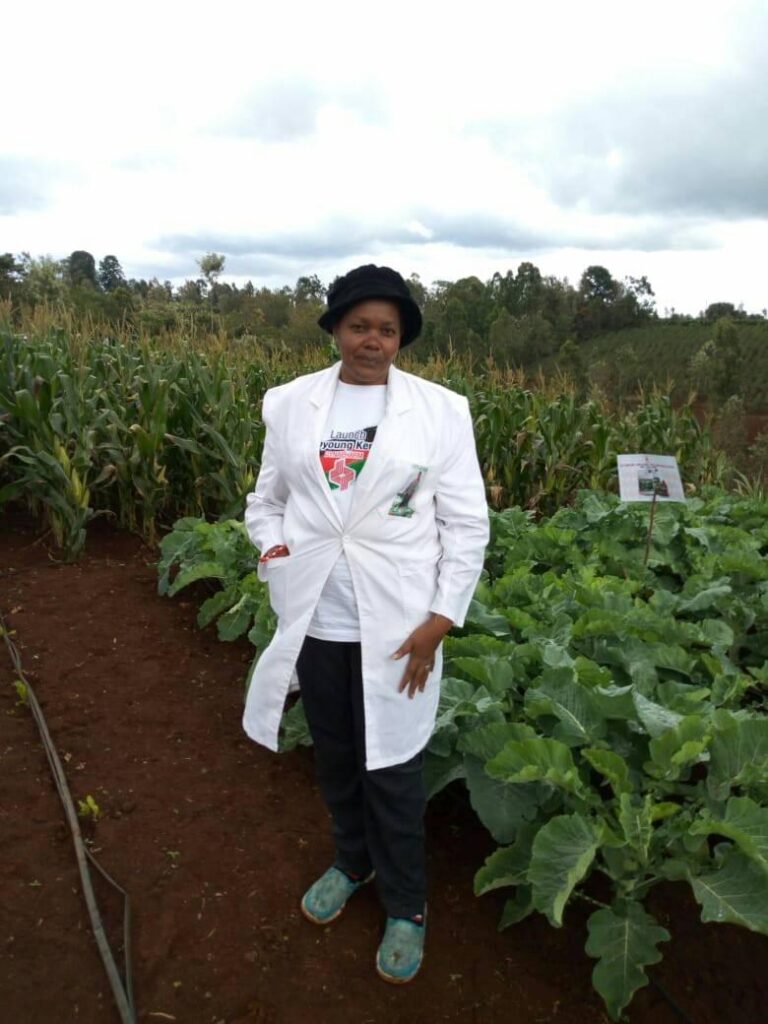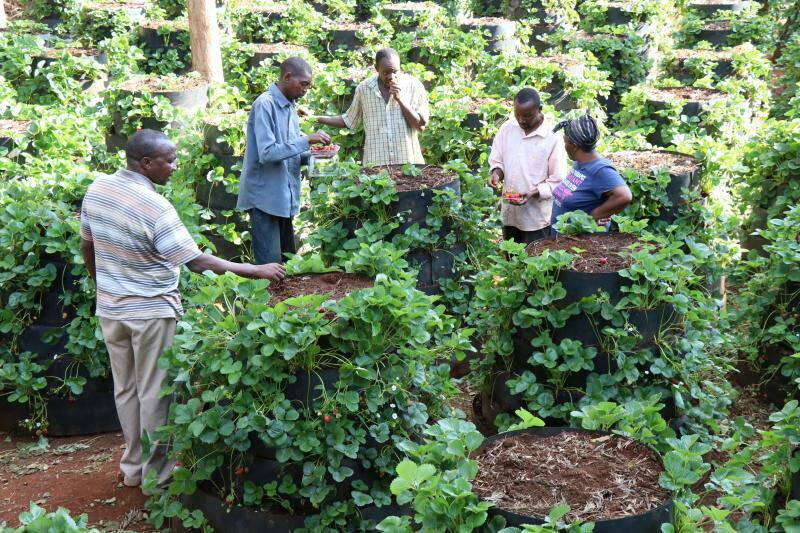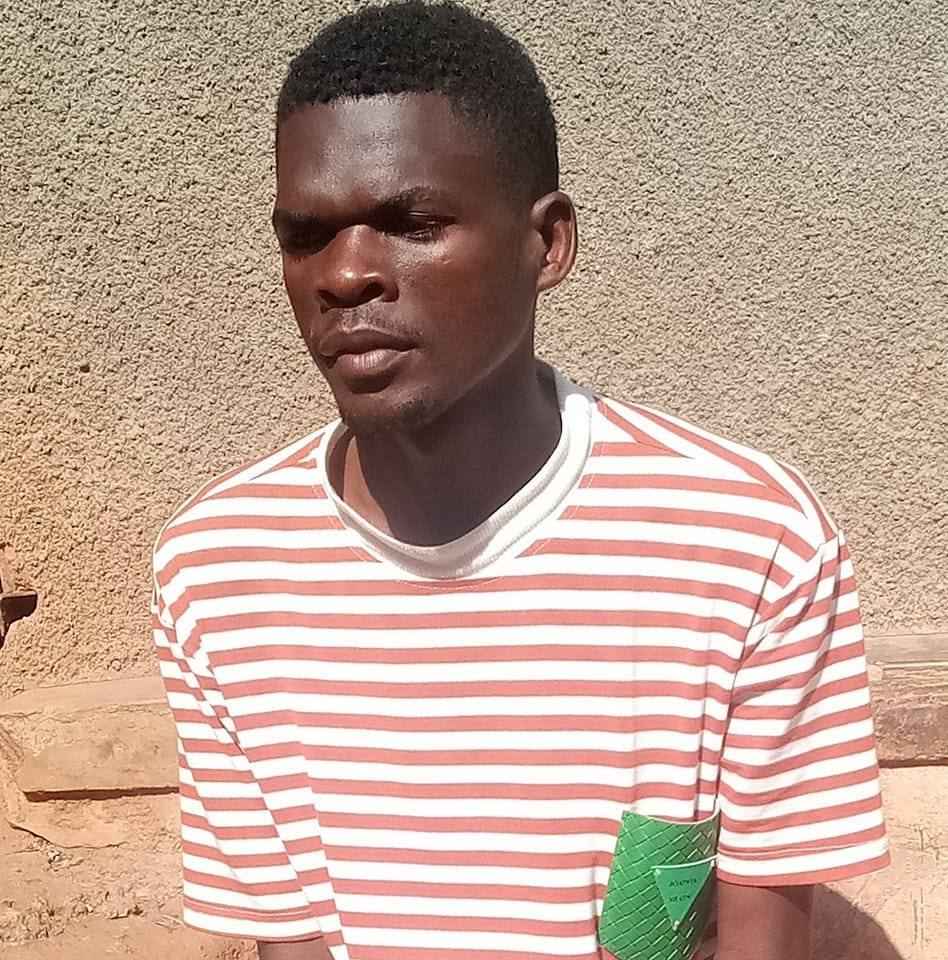Spreading Organic Farming in Africa [SOFAfrica] are passionate about Agro Ecological Regenerative Agriculture and Rural Development. Together with The Peoples Hub they see it as a viable and sustainable approach to turn around smallholder agriculture from mere subsistence farming to a more commercial enterprise. They are change-makers on how food is produced and linking the plate with the farm for a more safe and nutritious food to the ever increasing population.
![Spreading Organic Farming in Africa [SOFAfrica] learning Agro Ecological Regenerative Agriculture, photograph, Kenya](https://thepeopleshub.org/wp-content/uploads/2023/03/SOFAfrica-workshop.jpg)
They are champions and advocates of organic market enterprises and agribusinesses through value addition to create employment in the rural areas and reverse the rural to urban migration. The trainer, Simon who attended our Global Gatherings in October is experienced in Agro-ecological techniques towards social, economic and environmental conservation in Africa.
Together with The Peoples Hub network, SOFAfrica aim to spread organic farming not just in Africa but across the world! We are in talks with our American cousins to bring about a similar project in the US and incorporating their vision in the People's Global Coalition of Food Systems.

They provide training to farmers, youths and schools, while also running youth volunteer programs.
Please do join our Global Gatherings: Social Enterprise Farming & Agriculture Worldwide and Let's Get Social to help the people of the world.

They have a vision to provide economic opportunity through innovation, helping rural Kenyans and other African nationals to thrive; to promote agriculture production that better nourishes Kenyans / Africans while also helping feed others throughout the world; and to preserve our Nation's natural resources through conservation, restored forests, improved watersheds, and healthy private working lands.
By engaging with local communities to promote Bamboo tree planting and organic farming methods we will create a robust Bamboo economy. This will enrich the lives of rural Kenyans / Africans, as well as improve environmental conditions in a lasting and sustainable way.
"Arid lands can become lush and green, retaining moisture for all life to thrive."
Murungi, Simon, SOFAfrica
Bamboo has a very rapid maturation process and yields many valuable products. We believe this can be the start of a movement to regreen Africa and significantly combat climate chaos.
Let's help transform some of the desert into a garden!
Abilities to perform daily duties. Time management, need time to do work or operate efficiently and consistently in order to meet market. Problem solving, that's to say I often look for the best ways to raise their harvest of vegetables. Able to ensure a productive season no matter the unpredictable situations.
Vegetables can be grown in loam soil, it promotes the growth of almost all types of vegetables such as tomatoes, egg plants, cabbage. This doesn't mean you can't grow vegetables in other soil. Optimum vegetables is achieved on well drained sandy loam soil. A soil test will provide, the type of soil, the soil pH, organic matter and the levels of phosphorus.

| Notes from Uganda: We have to examine three different types of producers; small-scale, urban and peri urban, and large-scale commercial producers. Almost types of vegetables and other crops and diseases affecting them hence coming up with the solution to save farming projects in Africa. |
One of the skills I have is problem solving skills, as a farmer I have to look for the best ways to raise my harvest of my crops. When unexpected weather occurs, it can cause harvest delays as a farmer, it's important to know how to react/respond and how to make effective decisions in this type of scenario.
With problem solving skills, you are able to ensure a productive season no matter the unpredictable situations that rise.
Other skills are;
Organic material:
All vegetables need a healthy amount of organic materials in the soil they grow in.
Organic materials serves many purposes most importantly, it provides many of the nutrients that plants need to grow and thrive. Secondary, organic materials "softens" soil and makes it soft such that the roots can more easily spread through the soil.
Organic materials can come from either a compost or well rotted manure or a combination of both.
Nitrogen, Phosphorus and potassium. Preparing for vegetable garden, these three nutrients are the basic nutrients that all plants need. They are also known together as "NPK" and are the numbers you see on a bag of fertilizer e.g. (10-10-10) -Trace nutrients:
Vegetables also need a wide variety of trace minerals and nutrients to grow well. Those include boron, copper, iron, chloride, manganese, calcium, molybdenum and zinc.